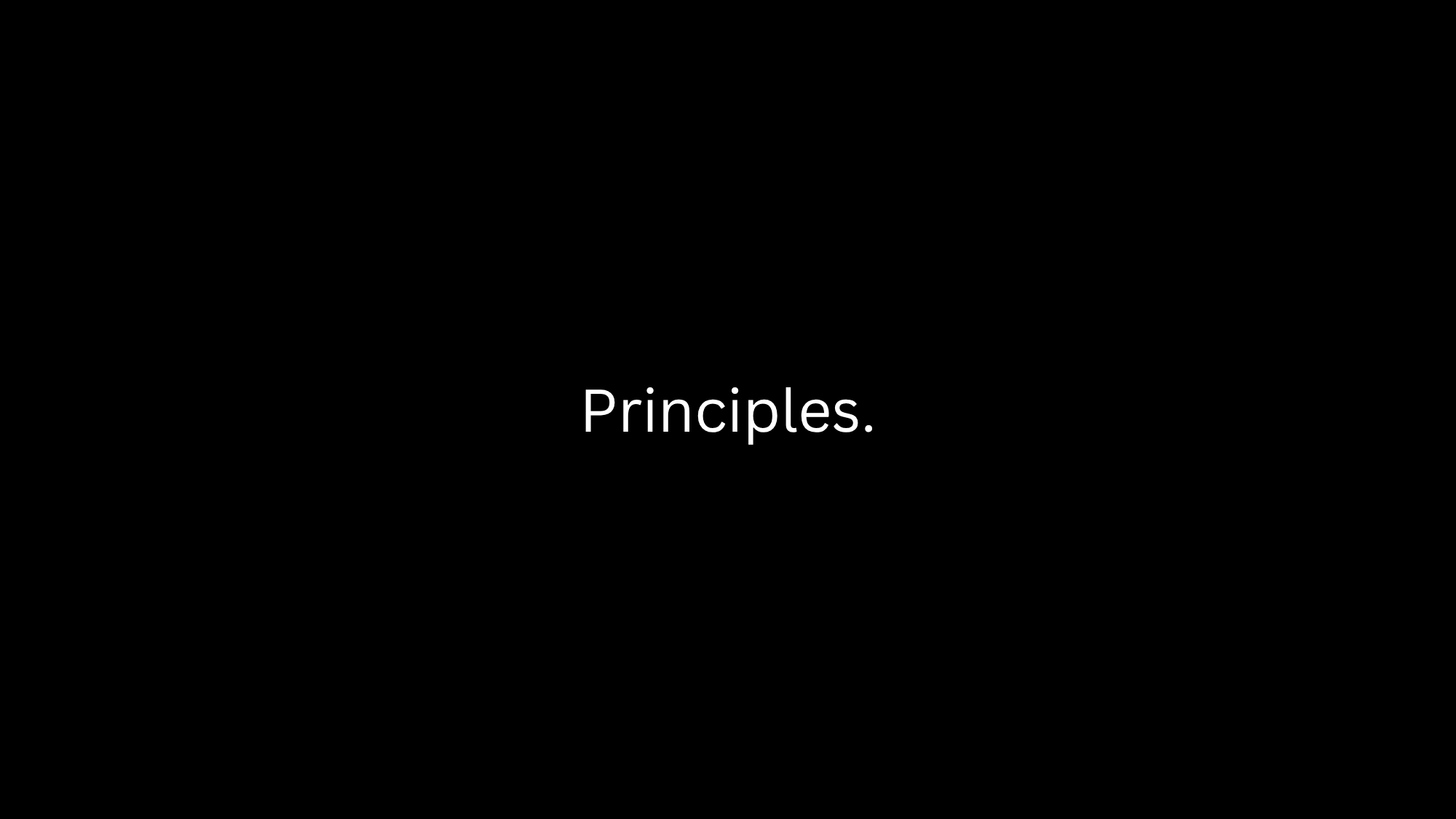

Why Venting Never Works, Dealing With Ventors & Death (7 mins read)
Amigos and amigas...
It's January.
Which means IT'S BLOODY FREEEEZZZZING IN THE UK. 🥶
(I'm literally getting frost bite on my fingers while typing this). 🖐❄️
In other news...
The big 3 newsletter is here!
- 1 mental health tip
- 1 social skills tip
- 1 personal reflection
But this week we're going to take a slightly different twist.
Because our mental health and social skills tip are linked.
So before we begin, let's define our main term...
To vent (verb) = give free expression to (a strong emotion).
Now let's begin...
1.) Why venting is never a good idea
We’ve all been there.
You’re sat listening to someone waffle on about the emotional outpourings of a current problem they have, whilst you subtly signal you couldn’t care less but still try to act interested anyway, until you think “oh god I wish they’d shut up” so you offer some useless advice to get them to stop talking and keep your fingers crossed this person never speaks to you again.

But I’m not letting you off the hook so fast.
Because we both know you’ve been this annoying person venting on more than one occasion (me included :).
So to understand why venting never helps us feel better, let's quickly explore why we vent in the first place...
You vent because you feel stressed.
And when you experience stress, your body doesn’t just rely on fight or flight to deal with it, it can rely on a third stress response called the "tend and befriend" response.
Evolutionarily speaking, 2 minds are better at dealing with a problem than 1 (think: sabre toothed tiger for your ancestors) so it's natural you'll want to reach out to others when you're experiencing a problem.
In fact, when you reach out to vent to others, you're doing so to fulfil 2 psychological needs...
1.) Cognitive need
- You want to understand the problem
- See it from another perspective
- Decide what action to take
- Calm your emotions down and redirect your unhelpful mental chatter
2.) Emotional
- You want to feel understood by others (through empathy and validation)
- You want to be soothed by others so your emotions can calm down
But here’s the problem…
When venting, you show a bias towards satisfying your emotional needs instead of your cognitive needs.
In other words, you don't want solutions, you just want to be understood.
For example…
If you’re venting to a friend about how upset you feel because you failed your driving test 2 days ago, you’ll want to be soothed and understood empathically rather than listen to your friend's advice on how to solve the problem.
What you want to hear is...
- “I understand how you feel.”
- “Ah man that must suck.”
Rather than…
- “Well just book your test again.”
- “Use it as fuel to learn what to do/not do next time.”
The bottom line...
Although well intentioned, by just meeting your emotional needs by validating how you feel, the only-empathic listener is keeping you stuck in the negative loop of the emotions you're trying to escape by asking you the who/what/where/when/why without helping you find solutions.
This process is called co-rumination.

The big picture…
The reason why co-rumination keeps you in a spiral of negativity is because your thoughts don’t exist alone.
All thoughts trigger similar thoughts associated with the last thought (lol thnks brain).
For example…
Take a 20 second break from reading this newsletter by looking away from the screen and thinking of the word cat.
...
(Hey, I see you reading more. Do the exercise BRO.)
...
Perhaps you didn’t just think of a cat but you also...
- Heard purring
-Felt the feeling of fur
-Imagined a cat was chasing something
-Triggered memories of cats you’ve known in the past
So this highlights how your thoughts are like dominoes.
One negative thought triggers another, which triggers another and another and another, until you’re sat in the bath on a Tuesday morning with no water running crying your eyes out whilst thinking about your ex.
%2520(1).png)
So by venting and only having your emotions validated, you’re triggering this negative loop by forcing yourself to continue feeling the exact negative emotions you want to escape from and waking up other negative thoughts and emotions related to those emotions!
Go deeper…
If you want some studies to back up why venting doesn't work...
Study 1:
Northern Illinois and Virginia tech students who shared thoughts and feelings with others after a school shooting didn’t see long term benefits.
Study 2:
People who shared their thoughts and feelings after 9/11 suffered more physical and mental ills long-term.
But now we know venting doesn’t work and co-rumination is about as useful as a pair of sunglasses on a bloke with one ear, let's cover how you can vent better (to avoid being a burden to others) and what to do when someone else is venting to you.
Enter this week's social skills tip...
2.) How to vent and receive a ventor better
Firstly, I've got some bad news for you...
You can’t just ignore people's emotional needs in favour of being practical all the time.
Because us humans are emotional and if you just gave everyone who vented to you quick advice you'd soon have no friends. :(
So the alternative to getting stuck in co-rumination is to combine the extremes of practical thinking and empathic receiving together.

To help someone who's venting, there's a simple 2 step process...
1.) Validate their emotions first (by empathically demonstrating to them you understand how they feel)
- Note: don't tell them "I understand how you feel". Show them by reflecting what they've said back to them, posturing both your shoulders so they're facing theirs and allowing them space to speak.
2.) Shift their perspective by asking them calibrated questions or giving indirect advice (explained below)
Consider these 2 steps as a tightrope you walk between being overly empathic (causing the ventor to stay in their negative loop) and overly practical (shutting down the ventor by giving them quick advice).

The big picture…
This 2 step process originated in the 1970s when the New York police hostage negotiations team realised hostage takers calmed down and cooperated more when they realised they weren’t in danger.
The motto of this negotiations playbook, initially developed by a policeman and clinical psychologist, was “talk to me”.
And officers were to use the framework of the 'behaviour change stairway model' to ensure cooperation from even the most hostile people.

So now let's finalise by briefly covering how to direct someone to behaviour change after you've first validated how they feel...
1.) Calibrated questions
The goal of practically helping someone who's venting is to give them the illusion of control while you steadily shift their perspective. All the while they're unaware of the direction you're taking them towards.
And you can do so with calibrated questions.
Calibrated questions are "how/what" questions delivered to deescalate conflict and introduce new ideas without sounding pushy.
Calibrated questions also:
- Don't ask for a single fact
- Make the other person stop and think
- Prevent what's known as "unbelief" (resistance) in the other person towards your ideas (a term coined by psychologist Kevin Dutton in his book split second persuasion)
- Prevent "verbal flexing" where you try to force other people to see your point of view
As hostage negotiator Chris Voss says:
When delivering calibrated questions, "you don’t directly persuade them to see your ideas. Instead, you ride them to your ideas. As the saying goes, the best way to ride a horse is in the direction in which it is going."
For example:
Imagine a friend is venting to you about leaving their job after a tough week.
But you think this would be a bad decision for them.
So instead of sparking resistance in them by saying "you can't leave" (❌) you could ask "what do you hope to achieve by leaving?" (✅)
Then you can explore the issue further whilst asking more CQs.
The alternative to calibrated questions are:
- Close ended questions that only result in yes/no answers (verbs: "do/does" are used) ❌
- Statements that cause resistance in the other person ❌
- "Why?" questions that come across as an accusation ❌
- Advice delivered at the wrong time which reduces the self-efficacy of the other person (your ability to believe in your capabilities) and depicts you out to be the "know it all" ❌
For example...
- Why did you do it? ❌
- Do you think that's a good idea? ❌
- Why don't you think about it this way... ❌
Better alternatives:
- What caused you to do it? ✅
- What about this is important to you? ✅
- How can I help you make the best decision? ✅
- What are you trying to accomplish here? / What's the objective? ✅
- What is it that has brought us to this situation? ✅
- How can you best solve this problem? ✅
Calibrated questions work because they're an indirect way of helping the person venting to solve their issue by combining your practical and non-emotional perspective with their intelligence.
Essentially, you're getting facts from the other person whilst getting them to think logically and creatively.
But calibrated questions aren't mindless questions.
To craft them you have to figure out where you want the conversation to go and then deliver your questions to guide the other person there.
For example...
Imagine your best friend is in a toxic relationship and he keeps venting his problems to you.
One option is to simply say; "hey man, it's about time you ended this relationship."
But you've tried this. And he clearly isn't listening to you.
So remember the formula:
1.) First empathise with him
- "Hey man, based on what you've explained, this sounds like a tough situation to be in right now."
2.) Indirectly guide him towards solving the problem by asking some CQs to change his perspective
- What are you afraid might happen if you leave?
- How could this impact you if you stayed together?
- What's the future looking like?
- What are the consequences of staying together?

All in all, you need to remove your bravado of wanting to give quick advice and guide the person towards behaviour change whilst giving them the illusion they're doing all the thinking.
As Robert Estabrook once said, “He who has learned to disagree without being disagreeable has discovered the most valuable secret of negotiation.”
Go deeper...
Other ways of giving indirect advice could be:
- Telling the person venting how someone you know dealt with a similar problem
- Giving the person what they need to solve the problem (e.g. if they need quiet space to work/study)
- Asking someone else for advice for you in front of the person you want to help
Finally...
When you want to vent to someone, you need to pick the right person for the job.
Don’t pick someone who will just offer you quick advice.
Choose someone you know will first listen to you and then offer you a perspective change.
And the wider range of people you rely on for support, the more you’ll benefit.
Remember, when someone is venting...
1.) Empathically understand
2.) Indirectly guide them towards behaviour change with calibrated questions
Books to read on this topic:
- Chatter (Ethan Kross)
- Never split the difference by Chris Vos (calibrated questions)
Now let’s finalise with this week’s personal realisation…
3.) "This is all going to end soon"
I used to watch Chris Williamson a lot more than I do now.
But 2 days ago I watched one of his videos and was hit with a big realisation.
He was speaking about the fallacy of convincing yourself in order to perform well you need to be stressed and become a "walking anxiety disorder primed for productivity".
But a simple reframe he offered was: believe that things will go well.
He then briefly explained why by saying: “all of this will be over soon.”
And I honestly felt my stomach sink.
It’s true.
We hear it a lot, "memento mori" and all that.
But this will all be over soon.
So why not allow yourself to enjoy it a bit more than you already are?
As Alan Watts said:
“The important thing to emphasise is presence; being completely here and not feeling guilty if you enjoy it!”
Thank you for reading,
Until next week!
Lew
What's next?
- Next vid will be this newsletter
- Then vid after that (hopefully) will be "why your emotions is holding you back" - honestly the video notes for this has been my arch nemesis this week, I can't quite wrap my head around it yet (it's all evolutionary psychiatry). Let's see how that turns out.
- Currently reading: chatter by Ethan Kross (great book)
- Social skills course = charisma research 70% done, coming along nicely ;)
Quote of the week:

Videos you might have missed:
other related newsletters
tHURSDAY'S THERAPY
Join 8934+ improving their mental health & social skills 1 Thursday newsletter at a time
Happy to have you here!
try refreshing the page and trying again!


.png)
.png)
.png)

.png)

.png)



.png)

.png)



%20(1).png)